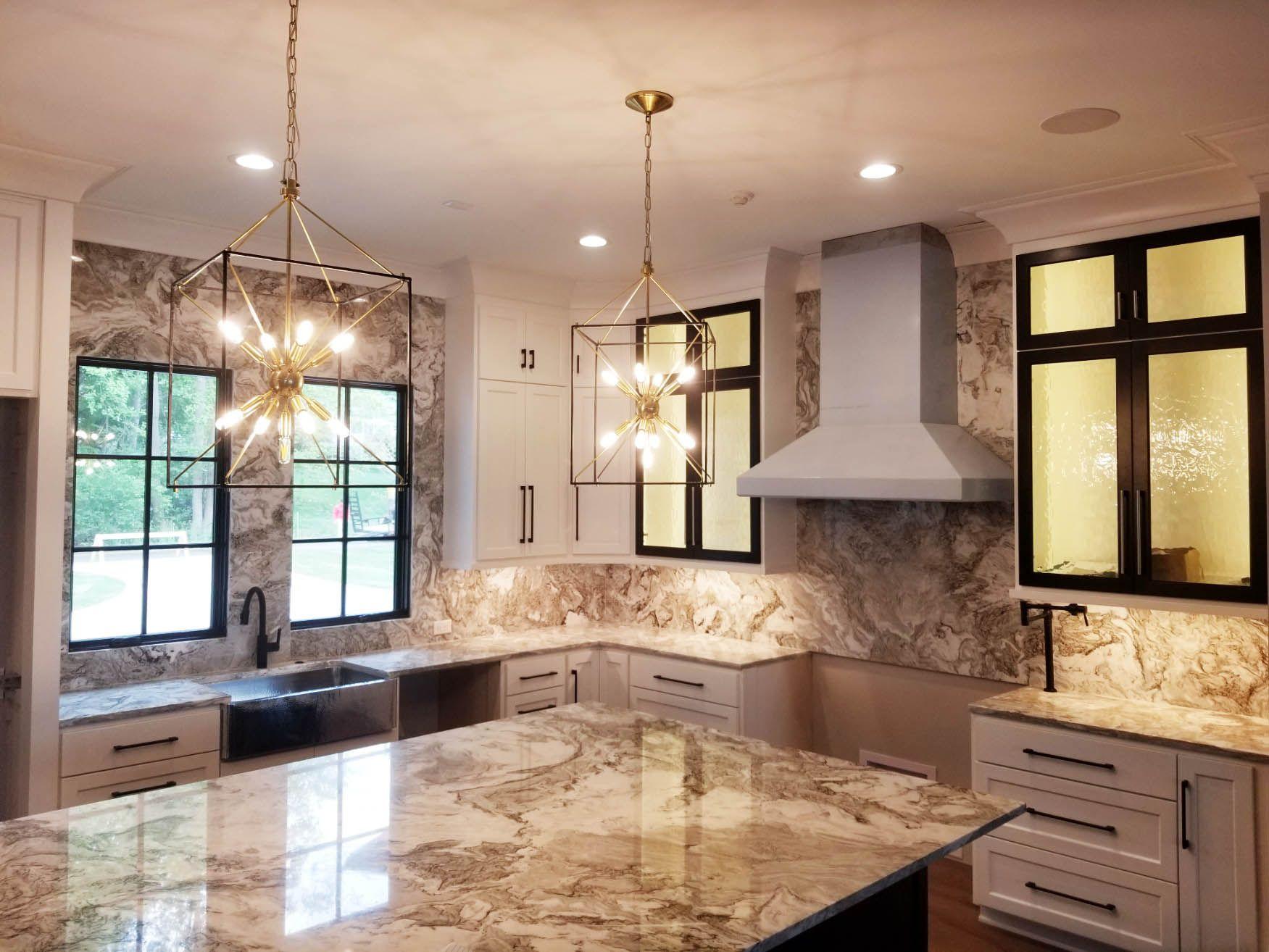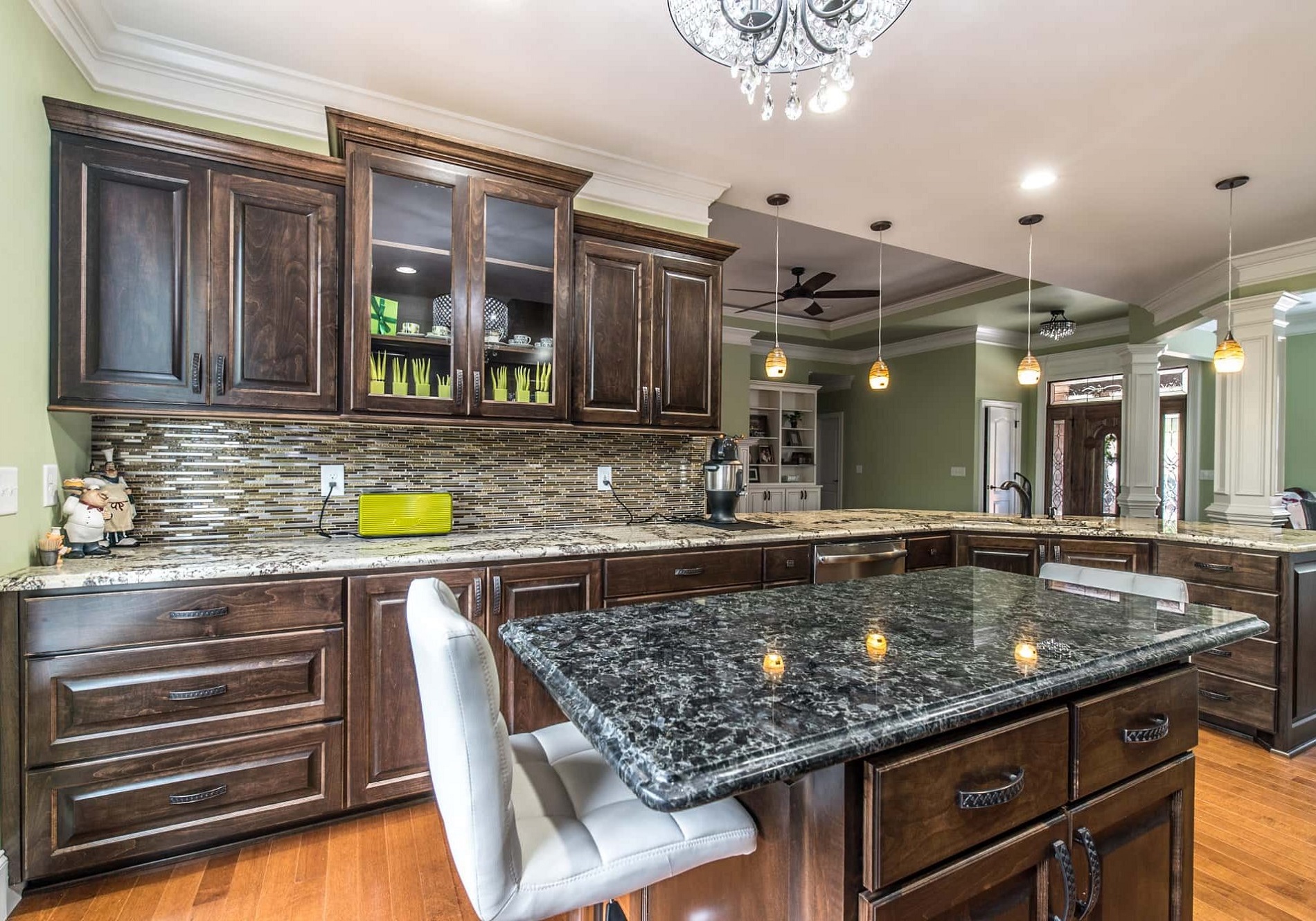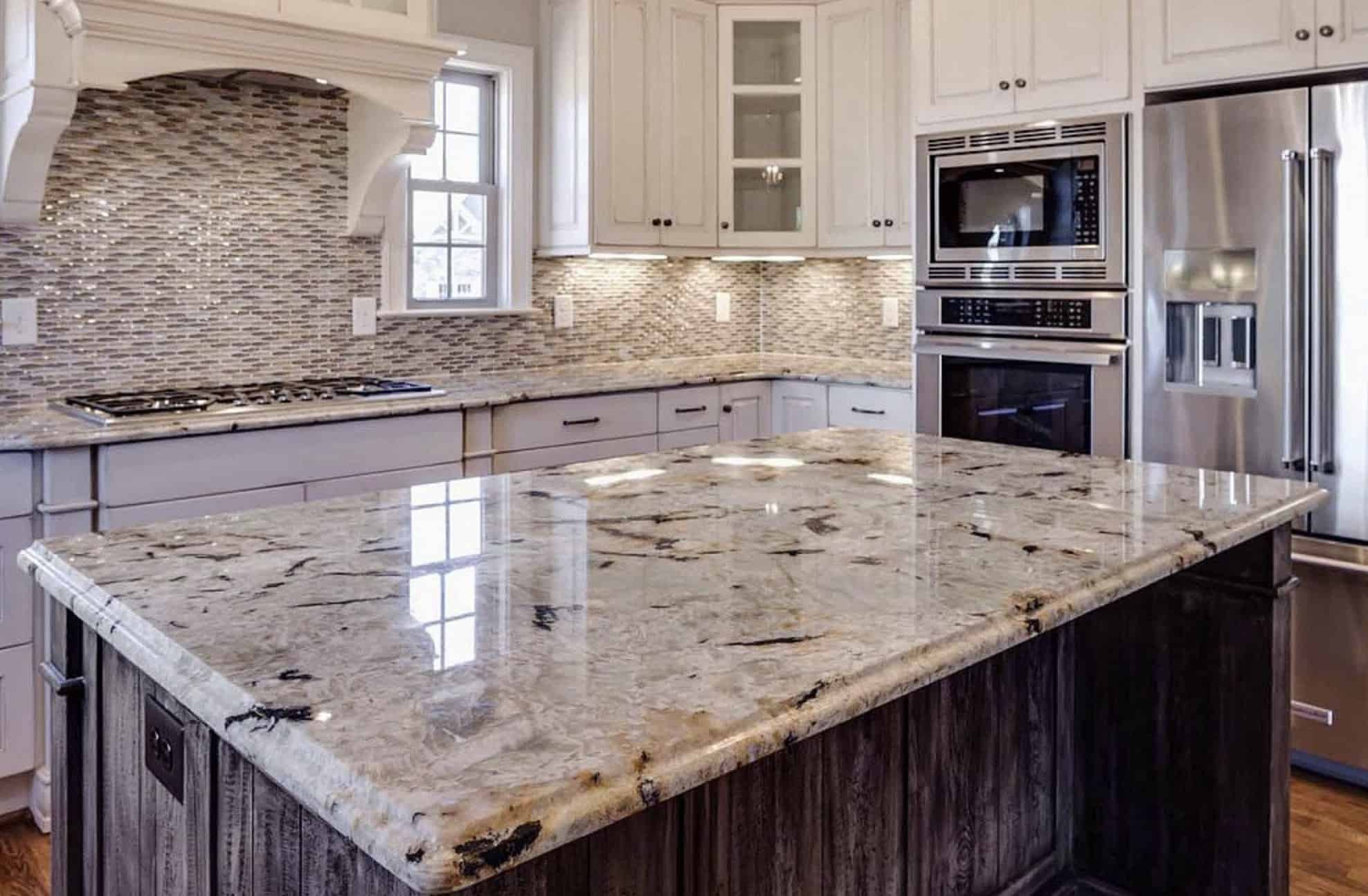What is granite countertops? It is a question that sparks curiosity in homeowners and design enthusiasts alike. In this comprehensive guide, we will delve into the fascinating world of granite countertops, exploring their unique properties, benefits, and the art of their installation and care.
From their unparalleled durability to their captivating aesthetic appeal, granite countertops have earned their place as a coveted choice for kitchens and bathrooms. Join us as we uncover the secrets of this timeless material, empowering you to make informed decisions for your home.
Properties of Granite Countertops

Granite is a natural stone that has been used for centuries in construction and decoration. It is known for its durability, heat resistance, and scratch resistance. Granite is also available in a wide variety of colors and patterns, making it a popular choice for countertops.
Durability and Heat Resistance
Granite is one of the most durable materials available for countertops. It is resistant to scratches, dents, and heat. Granite can withstand temperatures up to 1,200 degrees Fahrenheit, making it ideal for use around hot pots and pans.
Scratch and Stain Resistance
Granite is also highly scratch and stain resistant. This makes it a good choice for families with children or for those who entertain frequently. Granite countertops can be easily cleaned with soap and water, and they will not show wear and tear as easily as other materials.
Colors and Patterns
Granite is available in a wide variety of colors and patterns. Some of the most popular colors include black, white, gray, and red. Granite can also be found with a variety of patterns, including swirls, veins, and flecks.
Benefits of Granite Countertops

Granite countertops offer an array of benefits that enhance the aesthetics, value, and functionality of any kitchen or bathroom space.
Granite’s natural beauty and durability make it an excellent choice for homeowners seeking a timeless and elegant addition to their homes.
Aesthetics and Value
- Granite’s unique veining and color variations create a stunning visual appeal that adds character and depth to any space.
- The natural stone’s durability ensures that granite countertops retain their beauty and elegance for years to come.
- Granite’s high resistance to heat and scratches makes it ideal for busy kitchens, where spills and accidents are common.
Ease of Maintenance and Cleaning
- Granite countertops are remarkably easy to clean and maintain, requiring only regular wiping with a damp cloth and mild detergent.
- The non-porous surface of granite prevents bacteria and stains from penetrating, making it a hygienic choice for food preparation.
- Unlike other countertop materials, granite does not require regular sealing or waxing, further simplifying its upkeep.
Potential for Increased Home Value
- Granite countertops are a highly desirable feature among homebuyers, as they add value and appeal to any property.
- The durability and timeless beauty of granite make it a wise investment that can increase the resale value of a home.
- Homeowners who install granite countertops can expect a significant return on their investment when it comes time to sell.
Installation and Care of Granite Countertops: What Is Granite Countertops

Granite countertops, known for their durability and aesthetic appeal, require proper installation and care to maintain their beauty and functionality. Here’s a comprehensive guide to help you install and maintain granite countertops effectively.
Installation
Installing granite countertops requires professional expertise and specialized tools. Here’s a step-by-step process:
- Measure and Cut:Measure the countertop area accurately and cut the granite slabs to the desired size and shape.
- Prepare the Base:Ensure the base cabinets are level and stable before installing the granite.
- Apply Adhesive:Spread a layer of adhesive on the base cabinets and the granite slabs.
- Set the Countertops:Carefully place the granite slabs on the base cabinets and press them firmly into place.
- Secure with Screws:Use screws or bolts to secure the countertops to the base cabinets.
- Caulk and Seal:Apply caulk around the edges of the countertops and seal the joints to prevent moisture penetration.
Care and Maintenance, What is granite countertops
Proper care and maintenance are essential to preserve the beauty and longevity of granite countertops. Follow these tips:
- Clean Regularly:Use a mild dish soap and warm water to clean granite surfaces daily. Avoid using harsh chemicals or abrasive cleaners.
- Dry Thoroughly:After cleaning, use a clean cloth to dry the granite countertops completely. Leaving water on the surface can lead to staining.
- Protect from Heat:Avoid placing hot pots or pans directly on granite countertops. Use trivets or heat-resistant mats to protect the surface from heat damage.
- Prevent Stains:Wipe up spills immediately to prevent staining. Use a baking soda paste or a commercial granite cleaner to remove stains.
- Seal Regularly:Apply a granite sealer every 1-2 years to protect the surface from stains and moisture penetration.
Sealing and Protection
Sealing granite countertops is crucial for maintaining their durability and appearance. Here’s how to seal granite countertops:
- Choose a Quality Sealer:Select a high-quality granite sealer designed specifically for natural stone.
- Clean the Surface:Thoroughly clean the granite countertops before applying the sealer.
- Apply the Sealer:Apply the sealer evenly over the entire surface using a clean cloth or sponge.
- Allow to Penetrate:Allow the sealer to penetrate the granite for the recommended time specified on the product label.
- Wipe Off Excess:Remove any excess sealer using a clean cloth.
Comparison of Granite Countertops with Other Materials
Granite countertops are a popular choice for kitchens and bathrooms due to their durability, beauty, and value. However, they are not the only option available. Other materials, such as quartz, marble, and laminate, also have their own advantages and disadvantages.
Durability
Granite is one of the most durable materials available for countertops. It is resistant to scratches, heat, and stains. Quartz is also very durable, but it is not as resistant to heat as granite. Marble is a softer material than granite or quartz, so it is more susceptible to scratches and stains.
Laminate is the least durable of the four materials, but it is also the most affordable.
Cost
Granite countertops are typically more expensive than quartz, marble, or laminate countertops. The cost of granite countertops will vary depending on the type of granite, the size of the countertop, and the complexity of the installation. Quartz countertops are typically less expensive than granite countertops, but they are still more expensive than marble or laminate countertops.
Marble countertops are typically the most expensive of the four materials, but they can also be the most beautiful. Laminate countertops are the most affordable of the four materials, but they are also the least durable.
Table of Key Differences
The following table summarizes the key differences between granite countertops and other materials:| Feature | Granite | Quartz | Marble | Laminate ||—|—|—|—|—|| Durability | High | High | Medium | Low || Cost | High | Medium | High | Low || Heat Resistance | High | Medium | Low | Low || Scratch Resistance | High | High | Medium | Low || Stain Resistance | High | High | Medium | Low |
Closing Notes

As we conclude our exploration of what is granite countertops, it is evident that this remarkable material embodies a harmonious blend of functionality and beauty. Its durability, ease of maintenance, and timeless appeal make it an investment that will elevate your home’s aesthetics and value for years to come.
Whether you are embarking on a new construction project or seeking to revitalize your existing space, granite countertops offer a myriad of possibilities to transform your home into a haven of style and sophistication.
